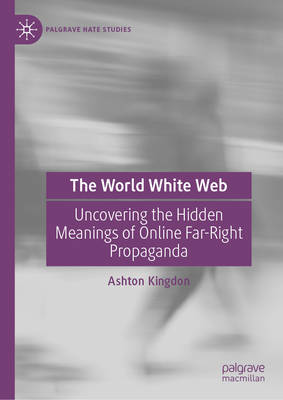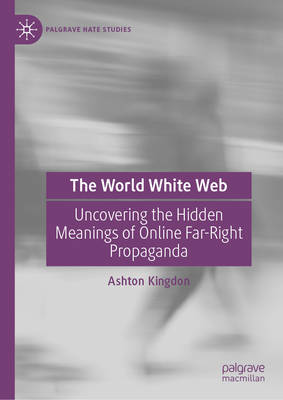
- Retrait gratuit dans votre magasin Club
- 7.000.000 titres dans notre catalogue
- Payer en toute sécurité
- Toujours un magasin près de chez vous
- Retrait gratuit dans votre magasin Club
- 7.000.000 titres dans notre catalogue
- Payer en toute sécurité
- Toujours un magasin près de chez vous
Description
The World White Web provides an interdisciplinary analysis of far-right radicalisation in the digital age, drawing from criminology, history, and computer science to explore how technology and imagery accelerate extremist recruitment. The book examines 20,000 internet memes to reveal white supremacy's deep historical roots. It demonstrates how far-right propagandists leverage historical narratives and symbols to influence modern-day recruitment, bridging fringe and mainstream ideas across diverse time periods, countries and contexts, amid technological and social changes. Topics include racism and xenophobia in Greek and Roman antiquity, antisemitism in the Middle Ages, anti-Black racism rooted in the Antebellum South, the weaponisation of the Reconquista in Spain, the memeification of the Rurik Dynasty in Russia, Crusader iconography in the United States, Australia and New Zealand, eco-fascist propaganda in the Balkans, neo-Nazi mythology in India, and Völkisch ideology in Germany and Austria. The book emphasises the importance of interdisciplinary, socio-technical and multi-stakeholder approaches to truly comprehend and address the contemporary manifestations and threats posed by the global interconnectedness of the far right online.
Spécifications
Parties prenantes
- Auteur(s) :
- Editeur:
Contenu
- Nombre de pages :
- 273
- Langue:
- Anglais
- Collection :
Caractéristiques
- EAN:
- 9783031753923
- Date de parution :
- 22-01-25
- Format:
- Livre relié
- Format numérique:
- Genaaid
- Dimensions :
- 148 mm x 210 mm
- Poids :
- 485 g







